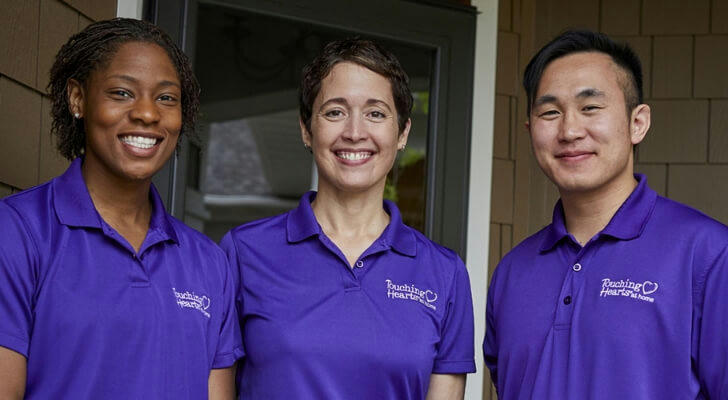Professional Home Care: The Best Care for Your Loved Ones
In today’s fast-paced society, balancing work and family responsibilities has become increasingly challenging. Especially for families with elderly members or individuals with special needs requiring long-term care, selecting high-quality home care is crucial. This decision isn't just about emotional concern; it’s about ensuring their health and quality of life. This extended article aims to delve deeper into why professional home care is essential, supported by real-life case studies and actionable solutions.

Why Choose Professional Home Care?
Opting for appropriate home care services provides numerous benefits. Its primary value lies in specifically addressing unique family care needs while easing burdens on primary caregivers. Below are comprehensive insights into the advantages of professional home care services:
Professional Qualifications and Experience
High-quality home care involves a team of skilled caregivers who are rigorously trained and certified. These professionals specialize in elderly care, rehabilitation, and attention to special needs. Their role surpasses merely physical care; they provide emotional and psychological support, ensuring comprehensive care.
Real Case Study: Sarah's Recovery Journey
Sarah, a 75-year-old retired school teacher from New Jersey, suffered a severe fall resulting in a hip fracture. Initially, her family struggled to manage her care while juggling daily responsibilities. They decided to hire a professional home care service with certified nurses who specialized in post-operative care and elderly rehabilitation. Through a structured rehabilitation program including physiotherapy and emotional support, Sarah was able to regain mobility over six months. Throughout this period, she developed a trusting relationship with her caregiver, which significantly improved her overall recovery and optimism.
Implementation Detail: For cases like Sarah's, caregivers should be trained not only in physical rehabilitation techniques but also possess skills in providing emotional reinforcement, ensuring comprehensive improvement in the patient’s condition.
Personalized Care Plans
Customized service is vital in home care. An effective care service should be tailored, considering the family’s specific circumstances, along with the health conditions, lifestyle, and personal preferences of the person receiving care. This comprehensive planning ensures alignment with family expectations.
Solution: Personalized care starts with a thorough initial assessment. This involves detailed interviews, health evaluations, and lifestyle assessments to create a precise, customized care plan. Regular reviews and adjustments ensure the care remains appropriate as the patient’s condition evolves.
Implementation Detail: Establish regular feedback loops with family members and patients to continuously adapt the care plan. Use technology to track changes in health metrics, ensuring care plans evolve alongside the patient's needs.
Emotional and Psychological Support
Long-term illness or aging individuals often require additional emotional support and companionship. Professional caregivers offer more than health care; they become confidants, alleviating loneliness and anxiety.
Real Case Study: Michael’s Emotional Wellness
Michael, aged 82 and a retired firefighter from Chicago, found himself experiencing loneliness and anxiety after his wife's passing. His daughter, residing on the opposite coast, could visit only occasionally. Hiring a professional caregiver who visited several times a week changed Michael’s outlook. His caregiver, trained in psychological support, introduced Michael to local community events and helped him rekindle his passion for woodworking. This relationship profoundly improved his mental health and helped combat emotional isolation, rebuilding his sense of community.
Implementation Detail: Caregivers should be trained to forge meaningful relationships with their clients, incorporating their hobbies into the care plan. This could involve engaging in shared activities and maintaining structured communication sessions.
24/7 Support
Many families face anxiety about potential emergencies. High-quality home care services offer round-the-clock support, ensuring professional help is available whenever needed. This continuous support provides families peace of mind.
Solution: Introduce a technological emergency response system. Families can employ systems that alert care providers and family members during emergencies, ensuring immediate action. Additionally, ensure caregivers are available for urgent needs and schedule regular check-ins, both in-person and via virtual consultations.
Implementation Detail: Equip homes with advanced monitoring systems, such as sensors that detect falls or unusual activity, and have a dedicated response team ready to act on alerts. Caregivers should be well-versed in emergency protocols to react swiftly and effectively.

Comprehensive Service Offerings
Home care services cover various life aspects: daily living assistance, health management, and rehabilitation therapy. These comprehensive service offerings ensure thorough, multidimensional care.
Real Case Study: Integrated Care for Lily
Lily, a 67-year-old woman from Seattle, battled a chronic illness that required specialist attention. Her family engaged a home care provider offering multi-disciplinary services. A dedicated team, including a dietitian and a physical therapist, was deployed to handle her nutritional and physical therapy needs. The care plan also integrated telemedicine consultations with her physician, ensuring comprehensive oversight and seamless adjustments. This approach reduced hospital visits and empowered Lily to manage her condition effectively from home.
Implementation Detail: Develop an integrated care model that includes collaboration between various specialists and the family. This model should be flexible and adaptable to ensure patients receive holistic and seamless care.
Implementing Effective Home Care Solutions
The importance of professional home care extends beyond individual benefits; it impacts society, particularly in an aging world. Here are further solutions to enhance the effectiveness of home care:
Leveraging Technology
Implementation: Use smart health monitoring devices, telemedicine platforms, and care management software to enhance care delivery. Wearable devices can monitor vital signs, detect falls, and track medication adherence, alerting caregivers of any anomalies.
Impact: These tools not only improve efficiency but also allow for personalized care adjustments, enhancing safety and quality of life. They enable caregivers to provide more targeted care, predict potential health issues, and reduce the risk of emergencies.

Policy and Community Support
Implementation: Advocate for policies that support home care services, such as financial subsidies, tax incentives, and caregiver training programs. Additionally, partner with local community organizations to provide social inclusion activities for those in care.
Impact: Such policies and community engagement can ensure the sustainability of home care services and improve overall caregiver and patient satisfaction. Encouraging community involvement fosters a supportive network, which can help families feel less isolated in the caregiving process.
Conclusion
Choosing the right home care service is not only a health-related decision; it's a commitment and a promise of respect to loved ones. Professional care teams and service quality can assist families in navigating complex care tasks, ensuring that each day is filled with warmth and hope. By harnessing technology, advocating for supportive policies, and emphasizing comprehensive, personalized care plans, families can create a nurturing and safe home environment for their loved ones. Together, we can ensure that those we care about most live with dignity and joy.
